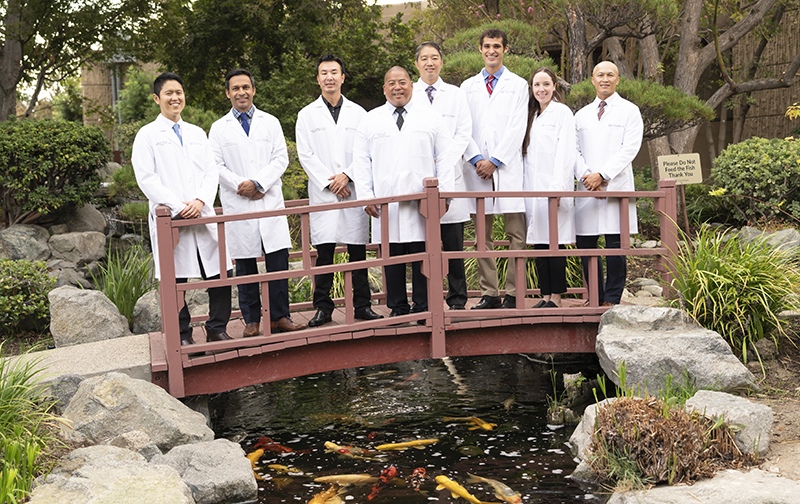Urologic Oncology and Robotic Surgery Fellowship

The Division of Urology and Urologic Oncology at City of Hope offers one- and two-year fellowships in urologic oncology/robotic surgery with special emphasis on minimally invasive and robotic techniques. The one-year program includes one year of clinical work, while the two-year program includes one year of research and one year of clinical work.
City of Hope has had a tradition of training future urologic oncologic surgeons since 1992, with an emphasis on minimally invasive oncology surgery starting in 2000. Approximately 60% of our fellows go on to careers in the academic setting.
Eligibility
Candidates must be graduates of an Accreditation Council for Graduate Medical Education (ACGME) - accredited urology program. There are generally three one-year clinical fellowship positions available for board-eligible/certified urologists. In addition, we offer two-year fellowships for those interested in enriching their training in basic science, translational and outcomes research in preparation for a career in academic urology.
The two-year fellows spend the first 12 months participating in research. The second 12 months will be the urologic oncology and robotic surgery clinical training on the urology service. During the clinical year, the fellows participate in a high volume of laparoscopic/robotic procedures and open oncology surgery, provide care for inpatients, including ICU care and offer continuity of care in the outpatient clinics.
Responsibilities
The fellow is responsible for inpatient care and typically operates four days per week with any one of the four current urologic oncology faculty members. All urologic oncology faculty are fellowship-trained and members of the Society of Urologic Oncology. The fellow is currently supported clinically by nurse practitioners and physician assistants.
Completion of this program also mandates that our fellows present at national meetings, write research papers, get involved with clinical trials, participate in journal clubs and present lectures to the oncologic community. Clinical fellows will also rotate at Huntington Memorial Hospital in Pasadena, California, and Foothill Presbyterian, in addition to their rotation at City of Hope.
Based on current occupancy levels, fellows would be anticipated to participate in the surgical care and management of approximately 800 laparoscopic robotic radical prostatectomies, 75 to 80 laparoscopic cystoprostatectomies with urinary diversion, and 100 to 150 laparoscopic and robotic nephrectomies. A variety of other endoscopic, endourologic and general urology cases occur throughout the year such as brachytherapy, focused ultrasound treatment of the prostate, MRI-ultrasound fusion biopsy of the prostate and others.
While minimally invasive techniques are an important part of this program, our fellows are also trained in complex open surgical techniques such as postchemotherapy RPLNDs, nephrectomies, open cystectomies and urinary tract reconstructions. Because our fellows train in a nationally recognized National Cancer Institute-designated cancer center, they also have opportunities to participate in many multiteamed procedures for abdominal and pelvic malignancies. Fellows are also exposed to a multidisciplinary treatment approach to urologic cancers by developing close relationships with radiation oncology, medical oncology, uroradiology and uropathology.
Contact
Bertram Yuh, M.D., M.S.H.C.P.M., M.I.S.M.
Director, Urologic Oncology Fellowship Program
Division of Urology and Urologic Oncology
City of Hope
1500 East Duarte Road
Duarte, CA 91010-3000
Email: byuh@coh.org
Christina Perez, C-TAGME
Training Program Administrator
Department of Surgery
City of Hope
1500 E. Duarte Road
Duarte, CA 91010-3000
Phone: 626-218-0521
Email: christinaperez@coh.org